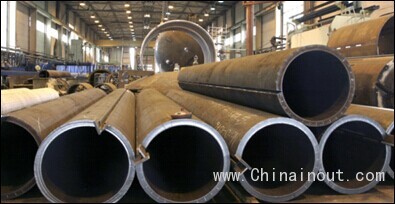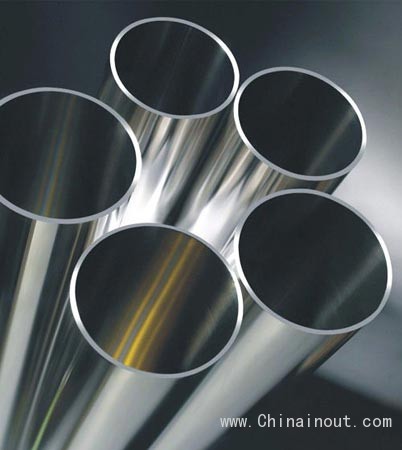(更多全球商業(yè)資訊請點(diǎn)擊瀏覽中國進(jìn)出口網(wǎng))

(路透社)——美國已經(jīng)核準(zhǔn)對韓國鋼管生產(chǎn)商和其他生產(chǎn)商反傾銷案件,,為國內(nèi)希望從美國油氣行業(yè)繁榮中受益的生產(chǎn)商扭住了不利局面。
根據(jù)美國鋼鐵協(xié)會(huì),美國的鋼鐵公司在2013年投訴外國制造商利用美國飛漲的能源基礎(chǔ)設(shè)施的需求向國內(nèi)傾銷,,去年一年進(jìn)口翻了一番,,占了近高達(dá)三分之二的國內(nèi)市場,。
這一上訴使美國商務(wù)部將“石油專用管材(OCTG)”關(guān)稅提高到118%,。
“這是國內(nèi)鋼鐵企業(yè)的一個(gè)偉大勝利,,” 美國鋼鐵制造商協(xié)會(huì)主席菲利普貝爾表示,,“這代表著一批北美鋼鐵公司的心聲”,。
根據(jù)商務(wù)數(shù)據(jù),2013年韓國出口到美國的石油專用管材價(jià)值8.18億美元,,比其他案件涉及國家要高,。
“這次主要涉及的國家是韓國,在一天結(jié)束的時(shí)候,,我們對這個(gè)結(jié)果很滿意”貝爾說,。
美國國際貿(mào)易委員會(huì)(ITC)裁定,與菲律賓和泰國不同,,來自韓國,,印度,臺灣,,土耳其,,烏克蘭和越南進(jìn)口的石油專用管,將征收反傾銷稅,。
原來被投訴的國家包括阿拉伯在內(nèi),,本周撤訴。
(更多全球商業(yè)資訊請點(diǎn)擊瀏覽中國進(jìn)出口網(wǎng))
商務(wù)部在七月說,,現(xiàn)代海斯克公司(Hyundai Hysco)的鋼管征收15.75%的反傾銷稅,對Nexteel征收9.89%的反傾銷稅,對其他韓國公司征稅幅度在12.82%,。
這些國家有30天的時(shí)間對美國國際貿(mào)易委員會(huì)的決定提出上訴。代表韓國和土耳其Julie Mendoza of Morris和Manning and Martin LLP表示將提起上訴,。
主要提振的美國鋼鐵生產(chǎn)商包括美國鋼鐵公司,,在18:12的交易中上漲了2.85%,,至37.88美元每股。
美國鋼鐵公司子公司泰納瑞斯Maverick Tube公司,,江鈴集團(tuán)Energex公司,,TMK IPSCO俄羅斯和法國瓦魯瑞克星投訴,說使用政府補(bǔ)貼廉價(jià)出售進(jìn)口石油管損害了他們的業(yè)務(wù),,這樣引起把價(jià)格下降而引發(fā)裁員,。
外國制造商反駁說,他們的管道量不足以威脅美國的產(chǎn)業(yè),,而不是歸咎于美國生產(chǎn)商增加供應(yīng)而降低價(jià)格,。
美國貿(mào)易官員正在通過自己的方式解決這個(gè)多達(dá)八個(gè)涉及各種鋼材產(chǎn)品的糾紛,這次案件所影響涉及的數(shù)量是最大的,。(更多全球商業(yè)資訊請點(diǎn)擊瀏覽中國進(jìn)出口網(wǎng))
U.S. steel pipe makers win key anti-dumping case against cheap imports

U.S. steel pipe makers win key anti-dumping case against cheap imports
(Reuters) - The United States has approved anti-dumping duties against South Korea and other producers of steel pipes for the energy sector, a victory for domestic producers hoping to benefit from a boom in the U.S. shale oil and gas industry.
U.S. steel companies lodged a complaint in 2013 as foreign manufacturers cashed in on soaring U.S. energy infrastructure demand. imports doubled last year and accounted for nearly two-thirds of the domestic market, according to the American Iron and Steel Institute.
Although subject to appeal, the decision puts the U.S. Department of Commerce closer to imposing tariffs as high as 118 percent on "oil country tubular goods" (OCTG).
"This was a resounding victory for the domestic steelmakers," said Phillip Bell, president of the Steel Manufacturers Association, which represents a number of North American steelmakers.
South Korea's OCTG exports to the United States were worth $818 million in 2013, more than the combined imports of the other countries involved in the case, according to Commerce data.
"The major player here is South Korea, at the end of the day, and we're very happy with the result," Bell added.
The U.S. International Trade Commission (USITC) ruled that OCTG imports from South Korea, India, Taiwan, Turkey, Ukraine and Vietnam would be subject to duties, with those from the Philippines and Thailand exempt.
Saudi Arabia, part of the original complaint, was dropped from the case this week.
The Commerce Department said in July that imports from South Korea's Hyundai Hysco would be subject to duties of 15.75 percent, those from Nexteel to 9.89 percent duties and all other South Korean producers will have a duty of 12.82 percent.
Countries have 30 days to appeal the USITC decision. Julie Mendoza of Morris, Manning and Martin LLP, which represented South Korea and Turkey, said an appeal would be filed. "There was a good case to be made for no injury," she said.
The ruling boosted shares in U.S. steel producers, including United States Steel Corp, which was trading up 2.85 percent at $37.88 per share at 1812 GMT in a broadly flat market.
United States Steel, Tenaris SA subsidiary Maverick Tube Corporation, JMC Steel Group Inc's Energex Tube, Russia's TMK IPSCO and France's Vallourec Star were among those who filed the complaint, saying OCTG imports sold cheaply using government subsidies had harmed their business, dragged prices down and triggered job cuts.
Foreign manufacturers countered that they do not supply enough pipe to threaten the U.S. industry, and instead blamed the lower prices on U.S. producers increasing supply.
U.S. trade officials are working their way through as many as eight disputes involving various steel products, but the OCTG case has been the most significant in terms of volumes affected.
(更多全球商業(yè)資訊請點(diǎn)擊瀏覽中國進(jìn)出口網(wǎng))







